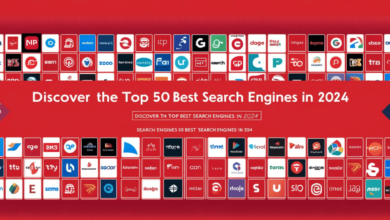
The Google algorithm leak 2024 has sent shockwaves through the SEO community, offering unprecedented insights into the metrics and systems that shape a website’s visibility in the Search Engine Results Pages (SERPs). As SEO professionals, we must navigate these revelations carefully to harness the potential they offer. This article dives deep into the implications of the leak, dissecting how solo marketers and DIY SEOs can capitalize on this new information to drive their sites up the rankings.
Understanding the Google Algorithm Leak of 2024
In 2024, a significant event shook the SEO world—Google’s search algorithm was leaked. Although technically an API leak, this incident has provided the community with a treasure trove of data, exposing the inner workings of Google’s search ranking system. This leak has unveiled critical ranking factors that were previously only speculated upon. For SEO professionals and enthusiasts alike, this is a rare opportunity to glimpse behind the curtain of one of the most secretive algorithms in the tech world.
Key Metrics Revealed
The leak has highlighted several key metrics that Google uses to determine a website’s position in the SERPs. Understanding these metrics is crucial for any SEO strategy moving forward.
- User Experience Signals
- Google has long emphasized the importance of user experience (UX) in ranking websites, but the leak reveals the extent to which this is true. Metrics like Core Web Vitals, including Largest Contentful Paint (LCP), First Input Delay (FID), and Cumulative Layout Shift (CLS), are heavily weighted. Sites with faster load times, minimal delays in interactivity, and stable content layout are favored in the rankings.
- Engagement Metrics
- Engagement metrics such as Click-Through Rate (CTR), Bounce Rate, and Dwell Time have been confirmed as significant ranking factors. The more time users spend on your site, the better your chances of ranking higher. This underscores the importance of creating engaging, valuable content that meets the needs of your audience.
- Content Freshness and Relevance
- The leak confirms that content freshness plays a critical role in search rankings. Websites that regularly update their content to reflect the latest trends, news, and user queries are more likely to be favored by the algorithm. This reinforces the need for ongoing content optimization and the inclusion of up-to-date information.
- Backlink Quality
- While backlinks have always been a cornerstone of SEO, the leak reveals a deeper understanding of how Google evaluates them. It’s not just the quantity of backlinks but the quality and relevance that matter most. Links from high-authority sites within your niche carry more weight than numerous links from less relevant or low-authority sites.
- On-Page SEO and Semantic Search
- On-page SEO elements such as keyword usage, meta tags, and header tags remain important. However, the leak also highlights the growing importance of semantic search—Google’s ability to understand the context and intent behind a search query. This means that content should not just focus on keywords but also on the overall topic and related subtopics.
How DIY SEOs Can Leverage the Leak
For solo marketers and DIY SEOs, the question is, “How can we use this data to enhance our search rankings?” Here’s a step-by-step guide to make the most of the leaked information.
1. Prioritize User Experience (UX)
With user experience signals being heavily weighted, it’s crucial to ensure that your website is optimized for speed, interactivity, and stability. Begin by analyzing your site’s performance using tools like Google’s PageSpeed Insights and Lighthouse. Focus on improving your Core Web Vitals, particularly LCP, FID, and CLS.
2. Enhance Content Engagement
Given the importance of engagement metrics, creating content that resonates with your audience is more critical than ever. Start by conducting thorough keyword research to identify the terms and topics your audience is interested in. Craft content that is not only informative but also engaging. Use multimedia elements like images, videos, and infographics to keep users on your site longer.
3. Regularly Update Your Content
Content freshness is key to staying relevant in the eyes of Google. Develop a content calendar that includes regular updates to existing posts, as well as the creation of new content that addresses the latest trends and queries in your industry. This not only signals to Google that your content is current but also encourages users to return to your site for the latest information.
4. Focus on High-Quality Backlinks
Instead of chasing a high number of backlinks, focus on acquiring links from authoritative sources within your niche. Engage in guest blogging, participate in industry forums, and build relationships with influencers to earn high-quality backlinks. Use tools like Ahrefs or Moz to monitor your backlink profile and identify opportunities for improvement.
5. Optimize for Semantic Search
As Google becomes more adept at understanding the intent behind search queries, it’s important to optimize your content for semantic search. This means going beyond keyword optimization and focusing on the overall context of your content. Incorporate related keywords, synonyms, and FAQs to cover the topic comprehensively. Use tools like Google’s Natural Language Processing (NLP) API to analyze your content and ensure it aligns with the intent of user queries.
The Impact of the Leak on SEO Strategies
The Google algorithm leak of 2024 is more than just a headline—it’s a game-changer for how we approach SEO. By understanding the key metrics and systems revealed by the leak, SEO professionals can refine their strategies to align more closely with Google’s ranking factors. For DIY SEOs, this is an opportunity to level the playing field and compete with larger, more established websites.
Adapting to the New Normal
The insights gained from the leak should prompt a reevaluation of your current SEO strategy. Consider conducting a comprehensive SEO audit of your website to identify areas for improvement based on the new information. This could involve anything from redesigning your website for better user experience to updating your content strategy to focus on freshness and relevance.
Long-Term Implications
While the immediate focus is on leveraging the leak for quick wins, it’s important to consider the long-term implications of these revelations. Google’s algorithm is constantly evolving, and staying ahead of the curve requires a proactive approach to SEO. This means continuously monitoring industry trends, adapting to changes in user behavior, and staying informed about updates to Google’s search algorithm.
Conclusion
The Google search algorithm leak of 2024 has opened a Pandora’s box of opportunities for SEO professionals and DIY marketers alike. By understanding and leveraging the key metrics and systems revealed by the leak, you can enhance your site’s visibility in the SERPs and drive more organic traffic to your website. Now is the time to act—prioritize user experience, create engaging content, and optimize for the future of search.



